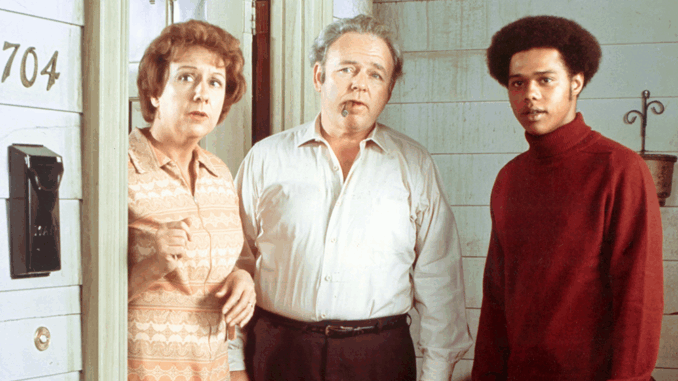
The Collider article ranks the best TV shows from each year of the 1970s, including iconic titles like MASH*, The Mary Tyler Moore Show, Roots, and Dallas. Among them, All in the Family (1971) stands out as a true game-changer. It redefined the sitcom format by blending humor with unfiltered social commentary on race, class, and politics. Its impact wasn’t just cultural it became a template for meaningful, thought-provoking television.
Why All in the Family Was the Defining Show of the 1970s
When All in the Family premiered in 1971, it didn’t just entertain it shattered expectations. At a time when sitcoms were sweet, sanitized, and safe, this Norman Lear creation introduced a blue-collar family in Queens whose dinner table debates felt raw, real, and unapologetically political.
At the center was Archie Bunker (played by Carroll O’Connor), a working-class bigot whose offensive remarks weren’t there for laughs alone, they were there to spark conversation. By placing Archie opposite his liberal son-in-law Mike (Rob Reiner), the show created a weekly clash of ideologies that reflected the generational and cultural tensions of 1970s America.

But what truly elevated All in the Family was its boldness. Topics like racism, sexism, war, poverty, and homosexuality weren’t just mentioned, they were the core of the plot. This was a show that dared to put the most uncomfortable truths of American life into prime time, and it did so with sharp humor and undeniable heart.
Critics and audiences alike recognized its brilliance. It dominated ratings for five straight years and won multiple Emmy Awards, not just for its writing and acting, but for reshaping what television could be. It wasn’t just a sitcom it was a social statement.
Even decades later, the show’s impact is clear. Many of today’s smartest comedies from Black-ish to The Bear — owe a creative debt to the risks Lear and his cast took in All in the Family. It proved that a sitcom could do more than make people laugh. It could make them think.
